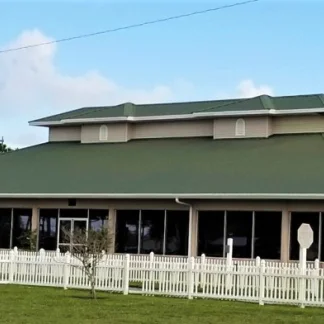Faith Farm Ministries
Okeechobee, Florida, 7595 Northeast 128th Avenue, 34972
Available Programs
- Adult program
- Program for men
- Program for women
- Young adult program
Insurance and Financial
- Financing available
- Free
About this Facility
Faith Farm Ministries is a faith based recovery facility in Okeechobee, Florida. They employ a self described "rural model" where clients work on a 1,500 acre ranch as part of treatment. The program exclusively serves men. At the core of the program are Christian principles and education, which inform all levels of care. The surrounding natural amenities, including acres of wetlands, create a serene setting where clients can focus on themselves and recovery.
Inpatient care sees clients living on the Faith Farm campus for the duration of treatment. They are closely monitored by staff who will chart progress and provide ongoing guidance. Because it is a working ranch, those enrolled in the program will also engage in daily operations, which takes on many forms.
On site work adds a greater level of structure to treatment and helps foster work ethic and personal responsibility, two principles important to the program. In addition to recreation, the program provides therapy, life skill coaching, and spiritual teaching and support.
Recovery is an ongoing, life long process whose success benefits from extensive support. While clients will leave the program with the skills needed to lead a sober life, they can leave with ongoing support from Faith Farm. Staff will help prepare clients with a fully developed aftercare plan that establishes important goals and connections with community resources to assist on the continuing path of recovery.
Those who complete the program can return for the Advanced Student program. Alumni work and act as support for other students while continuing their own education.
While staying at Faith Farm clients experience many opportunities for interaction with the local community. For example, they may play a role in operating the Faith Farm thrift store in downtown Okeechobee. Such opportunities give more chances to utilize the skills learned during treatment.
Faith Farm Ministries is a not for profit organization that survives on charitable donations and gifts. Applicants do not require insurance or other financing to attend.
Contact us for more information: (863) 763-4224

Contact Faith Farm Ministries
Connect with Faith Farm Ministries by calling their admissions team directly.
(863) 763-4224 Website Get Directions